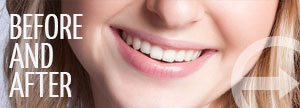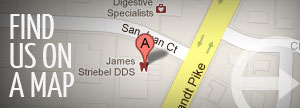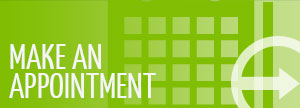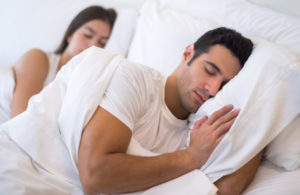


 (937) 235-2400
(937) 235-2400


How much do you snore? Do you know? Your spouse and kids certainly do. Unfortunately, snoring does more than disrupt a quiet household. It has serious health effects as a symptom of sleep apnea in Huber Heights. James Striebel DDS helps people with the diagnosis of sleep apnea with comfortable and effective Somnodent oral appliances. They allow people to rest and enjoy better health.
This sleep disorder is characterized by excessively loud snoring and repeated episodes of interrupted breathing. Consequently, individuals suffer oxygen deprivation which makes them wake multiple times per night, gasping for air. Besides poor rest, sleep apnea affects those who sleep close by. Additionally, patients exhibit daytime symptoms of:
Sleep apnea plays a role in systemic health issues, too, such as Type-2 diabetes, hypertension, stroke, obesity and more. In short, sleep apnea is nothing to ignore.
According to the National Sleep Foundation, sleep apnea affects millions of Americans, including men, women and children. Men over the age of 40 are more prone to this sleep disorder as are people with large necks, enlarged tonsils, and weight problems or are individuals who smoke or abuse alcohol.
There are 3 basic kinds of sleep apnea:
A person who exhibits signs of sleep apnea should tell his or her primary care physician who, in turn, may recommend seeing a sleep specialist for in-office or at-home monitoring, diagnosis and treatment.
Many sleep doctors recommend CPAP Machines for treatment of sleep apnea. CPAP stands for Continuous Positive Airway Pressure. This bedside apparatus keeps the airway open by delivering a constant flow of oxygen into the patient’s airway via a nasal mask.
Unfortunately, some people find the noise of CPAP intolerable, or they may be claustrophobic and cannot tolerate wearing the mask. These patients, and others with simple OSA, can benefit from a custom-made acrylic “snore guard.”
Dr. Striebel offers SomnoDent oral devices as a great treatment for OSA. These FDA-cleared appliances comfortably position the lower mandible, or jawbone, forward, opening the airway and keeping it open. Used alone or with CPAP, SomnoDent snore guards are less invasive, easier to tolerate and very effective in treating snoring and its harmful effects.
If your spouse and kids say you snore consistently, don’t delay. Spare your sleep, your interpersonal relationships and your overall health with a consultation with Dr. James Strievel. He is a member of the American Academy of Dental Sleep Medicine and an expert on sleep apnea and snore appliances. Contact his office staff today to arrange your personal consultation.
No comments yet.
RSS feed for comments on this post.
Sorry, the comment form is closed at this time.